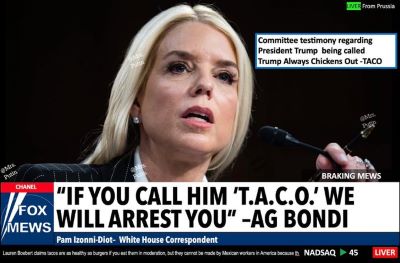At present the position of the New York State Historians lies deep within the bowels of the state bureaucracy, starved for resources, and scarcely able to see the light of day through all the bureaucratic levels above it.
Formerly, the State Historian reported to the Director of the New York State Museum, who reports to the Deputy Commissioner for the Office of Culture and Education, who reports to the Executive Deputy Commissioner of Education, who reports to Commissioner of Education, who answers to the Board of Regents.
But what does that mean?
Commissioner of Education
According to the NYSED website: “MaryEllen Elia is the New York State Commissioner of Education and President of the University of the State of New York (USNY). In this role, she oversees the work of more than 700 school districts with 3.2 million students; 7,000 libraries; 900 museums; and 52 professions encompassing more than 850,000 licensees.”
Elia earned her Bachelor of Arts degree in history from Daeman College in Buffalo, a Master of Education from the University of Buffalo, and a Master of Professional Studies from SUNY Buffalo. In 1970, she began teaching social studies in Buffalo’s Sweet Home Central School District. She taught for 19 years before becoming moving into administration.
Prior to her appointment as Commissioner of Education, Elia was superintendent of schools in Hillsborough County, FL, for 10 years. In Hillsborough, which includes Tampa and is the nation’s eighth largest school district, she worked to implement Common Core; to develop a comprehensive evaluation system; and earned national recognition for gains in student achievement.
Elia has a background in social studies and history, but most recently has concentrated in administration, especially the leading issues over the past few years: the Common Core, student testing, and teacher evaluations. The new Commissioner was hired to address these problems and her own comments reflect this:
“I want to thank the Board of Regents for giving me the opportunity to return to New York to do what I love to do—work on the behalf of children,” said Ms. Elia. “I began my career as a teacher and still consider myself a teacher at heart. Good teachers are also good listeners. My first item of business as Commissioner will be listening to parents, teachers, principals, school board members, and superintendents from across New York. I believe whole-community involvement is essential to make our schools and school system even stronger.”
These are valid and important issues, but unfortunately history was not on the radar in the five-month search for the new Commissioner.
She was not hired because of her experience in administering the State Archives, Library, and Museum (which includes the State Historian), or for promoting the importance of state and local history. These other facilities (including local historical societies and museums and municipal historians) were just extras, thrown in as part of the package. Indeed one scarcely hears about her in reference to these topics since she was hired.
If the history community was sufficiently organized to advocate on behalf of local and state history, what might it ask from the Commissioner? Here are some possibilities:
1. What if any are the requirements for teacher certification for social studies and elementary school teachers in the area of local and state history?
2. What if any are the professional development requirements for these teachers? (Once teachers have a position in a given municipality.)
3. What is the place of local and state history in the k-12 social studies curriculum? (Not just optional extra efforts, but what is obligatory.)
4. What do you envision as the role for the State Historian?
Even if the history community asked the Commissioner of Education for her positions and views on these subjects, would she respond?
Recently, a letter to the Commissioner by two respected members of the history community, Carol Kammen and Judith Wellman, was posted in New York History Blog. The letter begins by identifying their own background in this area:
We write as members of the Commission on Local and Public History that was convened ten years ago by Deputy Commissioner for Cultural Education Carole Huxley to advise the Department of Education on the appointment of a State Historian.
They then refer to the same unfilled vision that former state historian Bob Weible had in his own posts here at the New York History Blog.
We were consequently pleased to learn that the Regents approved the Office of Cultural Education’s 2011 strategic plan to “reinvent the office of state history.” This action would have energized and focused our community on its educational mission and restored New York to its rightful leadership position in the fields of public education and state history.
Along with Bruce Dearstyne and others, Kammen and Wellman have frequently commented in various forums, venues, and in the media about the dismal treatment of local and state history by New York State. In their letter they argued:
We believe that, at a minimum, no action should be taken on this matter until the appointment of a new Deputy Commissioner for Cultural Education, and we offer our services to help him or her explore reasonable options and determine a more satisfactory course of action.
Before turning to the New York State Museum Director’s response on behalf of the Commissioner, let’s briefly consider the position of the Executive Deputy Commissioner.
In December 2012, then Commissioner John King recommended to the Regents the appointment of Elizabeth Berlin as Executive Deputy Commissioner. In his letter, the Commissioner referred to her “extensive knowledge and experience as an administrator with experience managing cross-systems initiatives.” She had since 2007 been serving as Executive Deputy Commissioner at the New York State Office of Temporary and Disability Assistance. Previously she had served as Commissioner of the Department of Social Services for Albany County and the Albany County Executive’s Health and Human Services Coordinator. It’s reasonable to conclude that she was brought on board for her administrative skills and not for any expertise in education, archives, museums, or history.
In January 2015, Commissioner John King joined the Federal Government, Elizabeth Berlin become interim Commissioner of Education. There was, however, a slight change in the usual procedures. Berlin shared the responsibilities of running the department with Deputy Commissioner Ken Wagner, according to Education Department spokesman Dennis Tompkins. Tompkins declined to explain why Berlin would work with Wagner rather than independently, but it’s reasonable to conclude that the Regents decided it would be useful to have someone with an education background sharing the leadership load.
Deputy Commissioner Ken Wagner has departed to become the Rhode Island Commissioner of Education. As reported in the press:
Wagner’s departure is a high-profile loss for the department, where he had risen from a data analyst to senior deputy commissioner and was involved in some of the state’s most controversial policy moves. He joins a string of state education officials who have left the department over the last year, which has been marked by tumult over education policies and the end of the state’s Race to the Top funding.
A press release issued by [the Governor of Rhode Island]’s office Wednesday steered clear of controversial issues. It noted Wagner’s long career in public education. New York’s Julia Rafal-Baer, an assistant education commissioner, will join Wagner in Rhode Island, a source said Wednesday. Wagner, Rafal-Baer, and Raimondo’s office did not respond to requests for comment.
Given all these changes at the top and the ongoing public firestorm over education, it is easy to understand why the state and local history and the State Historian position were lost in the shuffle.
But wait, what about the Deputy Commissioner for Cultural Education? Couldn’t that person in charge of the NYS Archives, Library, and Museum (including the State Historian) not only advocate, but act on behalf of local and state history?
That position is vacant and that will have to be the subject of a future post.






No wonder NYS is hemmiraging jobs & taxpayers. This is a bureaucracy in need of a diet. Any progress on place based Edu probably will and should come bottom up – one school at a time. Of course the question none of these pols w their degrees in administration! Could answer is why local & state history matter. We must address that constantly and persuasively